Ageless Elegance: The rise of boudoir sessions for women over 50
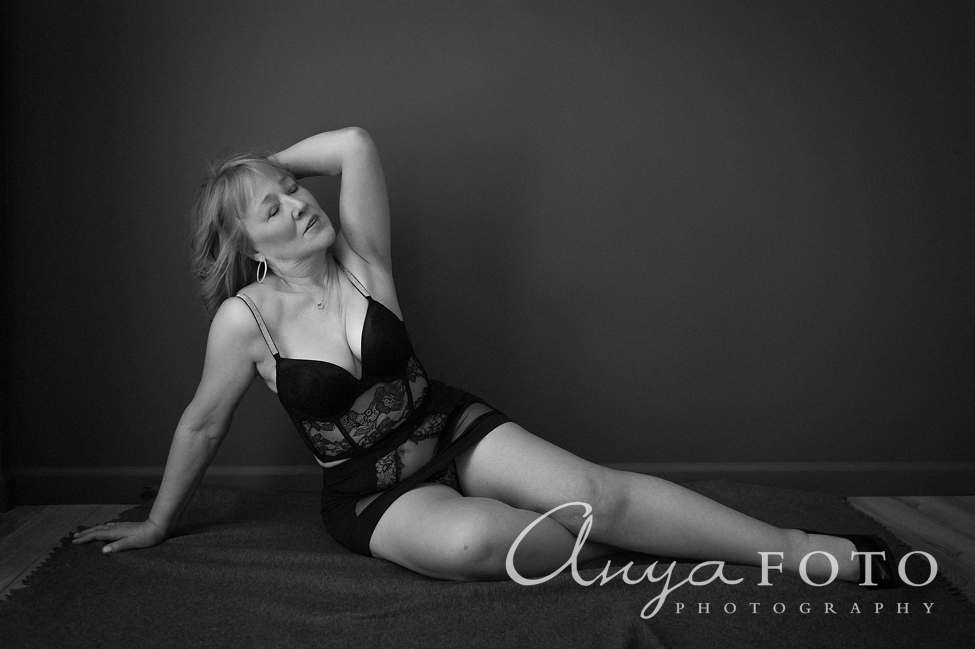
Boudoir photography has traditionally celebrated the intimate, private sides of individuals, often associated with youth and conventional beauty standards. However, a fresh, empowering trend is emerging: boudoir for the mature, confident woman. Let’s dive into the rise of boudoir sessions for women over 50, a movement redefining age-related stereotypes.
For decades, the media and popular culture painted a rigid picture of beauty: young, slender, and flawless. With the world’s population living longer and healthier lives, the paradigm has begun to shift towards a more inclusive and diverse representation, challenging previously held beliefs about age and allure.
The idea that beauty fades with age is a longstanding myth, ingrained deeply within societal norms. Yet, boudoir photography is pioneering a change, showcasing that allure, charm, and sensuality aren’t confined to youth.
For many mature women, a boudoir session is more than just photographs—it’s a statement. It’s about celebrating life’s milestones, cherishing their journey, and declaring that beauty is timeless. These sessions are becoming avenues for women to define beauty on their terms, embracing the confidence and poise that come with experience.
A boudoir session with a mature woman is rich with depth, stories, and character. Unlike younger subjects, they bring a lifetime of experiences, making their sessions uniquely poignant and genuine.
Connie, 74, shared her boudoir experience, ” I felt beautiful, sexy and confident. The photos captured a side of me that is me, but not always seen, and reminds me that I am also that woman every day. I will treasure my album forever as a reminder of another part of me that I almost forgot, and am so happy to have found.”
For those considering a boudoir session:
- Wardrobe: Choose outfits that make you feel confident, whether it’s vintage lingerie or a classic robe.
- Posing: Let your grace shine. Your photographer will guide you, ensuring poses that exude confidence.
- Makeup and Hairstyling: Focus on enhancing your natural beauty, letting your ageless charm shine through.
Embrace the changes your body has undergone. They’re a testament to your journey. Find a photographer who appreciates and captures the unique beauty of mature women, ensuring a comfortable and empowering experience.
Beauty knows no age. Through the lens of boudoir photography, we’re reminded of this truth time and time again. To all women, regardless of age, consider boudoir photography as a testament to your journey, your strength, and your timeless elegance. Challenge stereotypes, embrace your narrative, and most importantly, celebrate YOU.
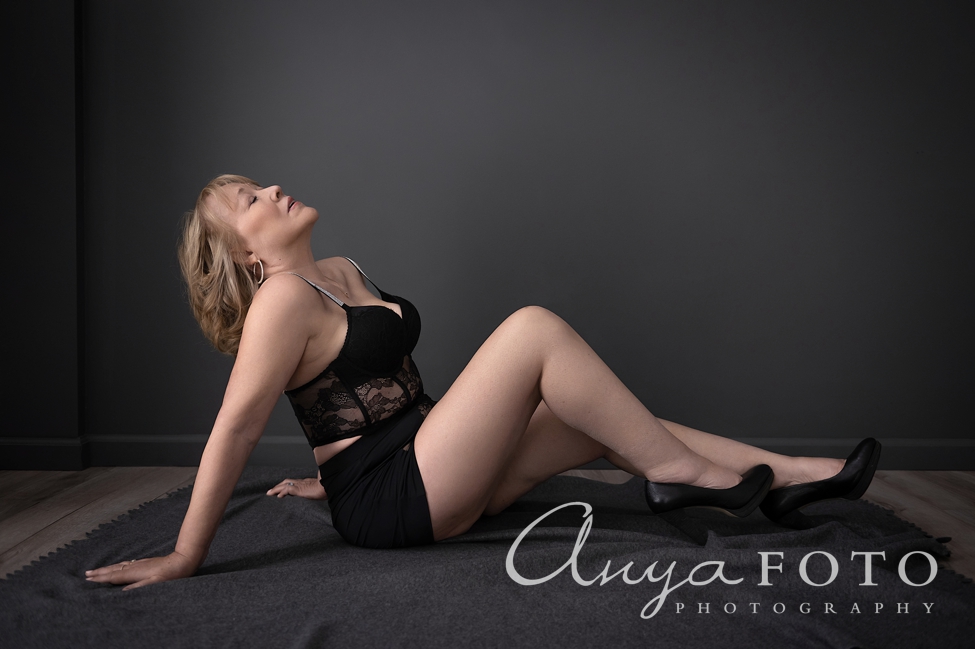
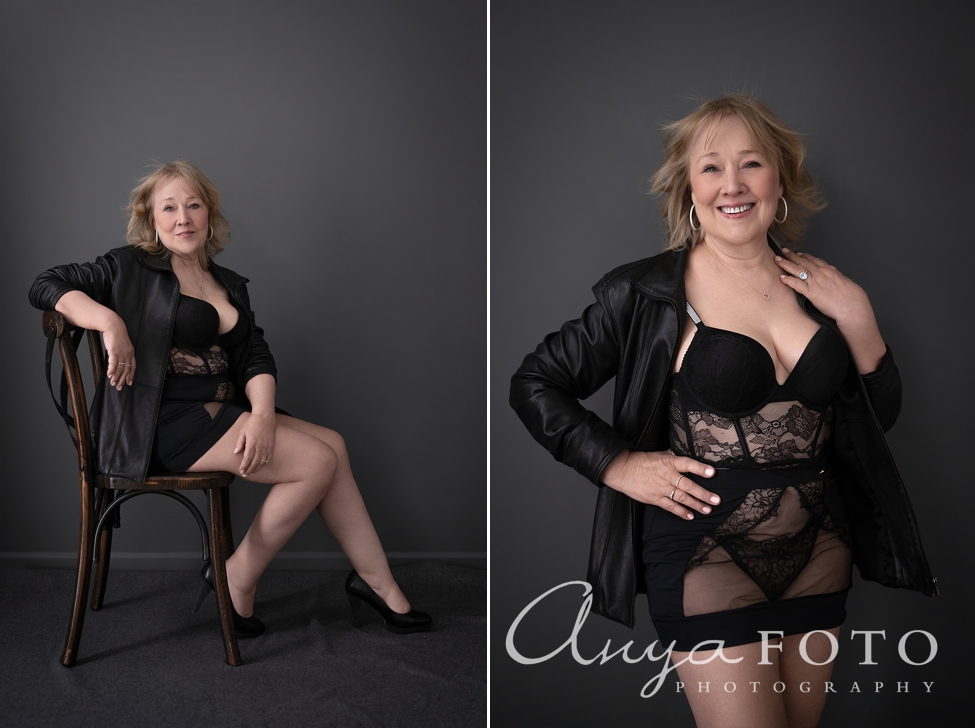
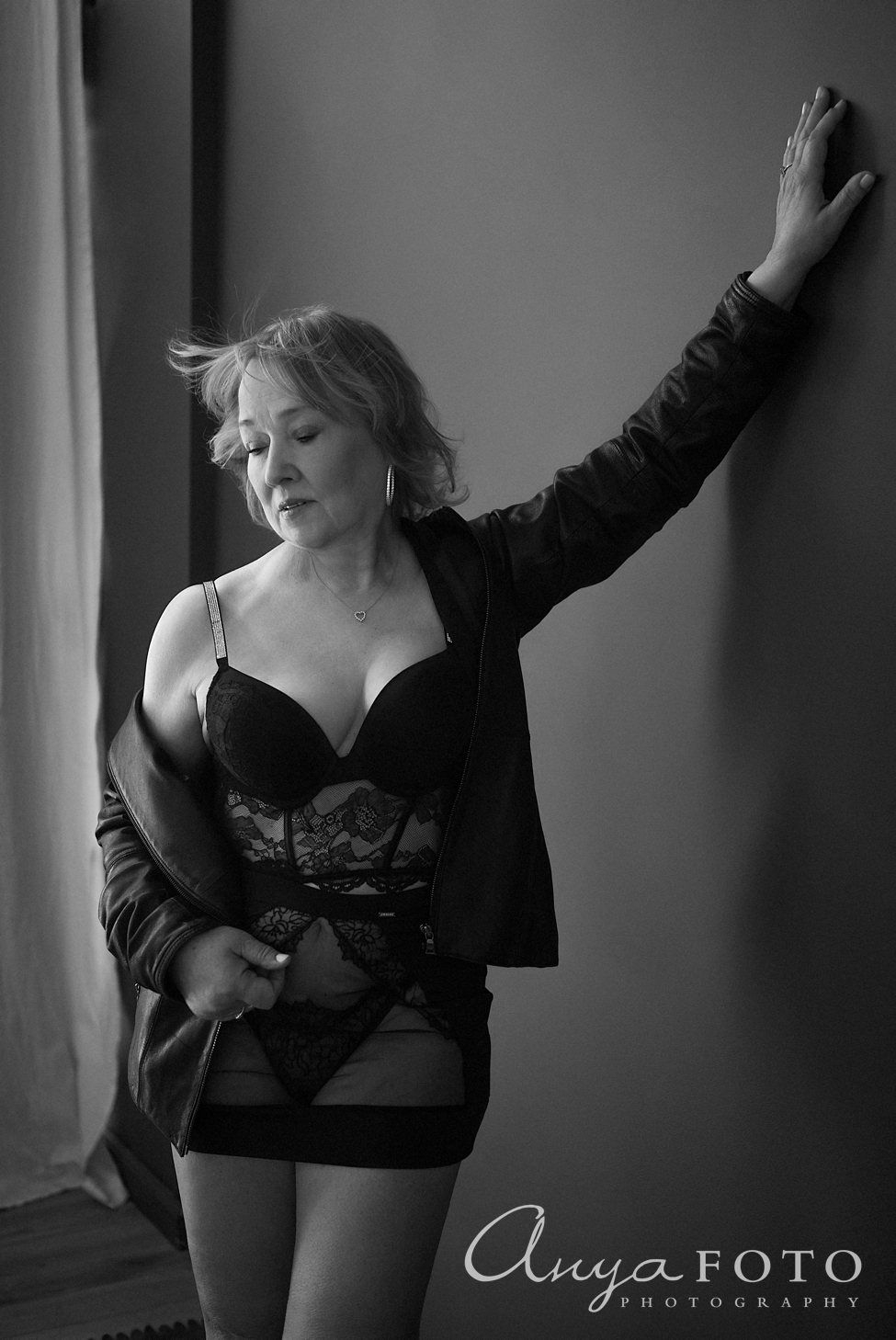
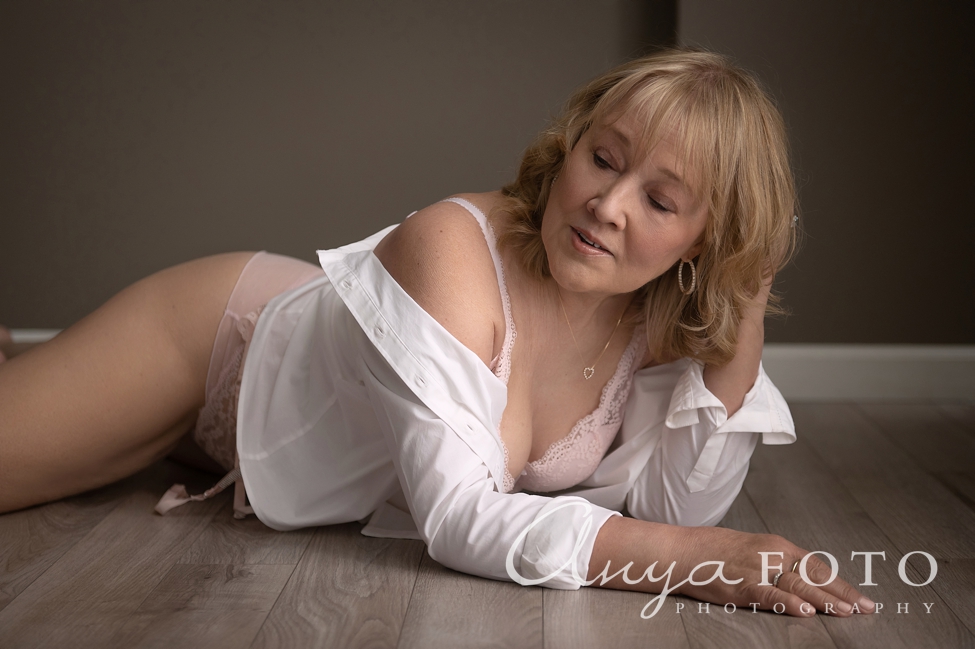
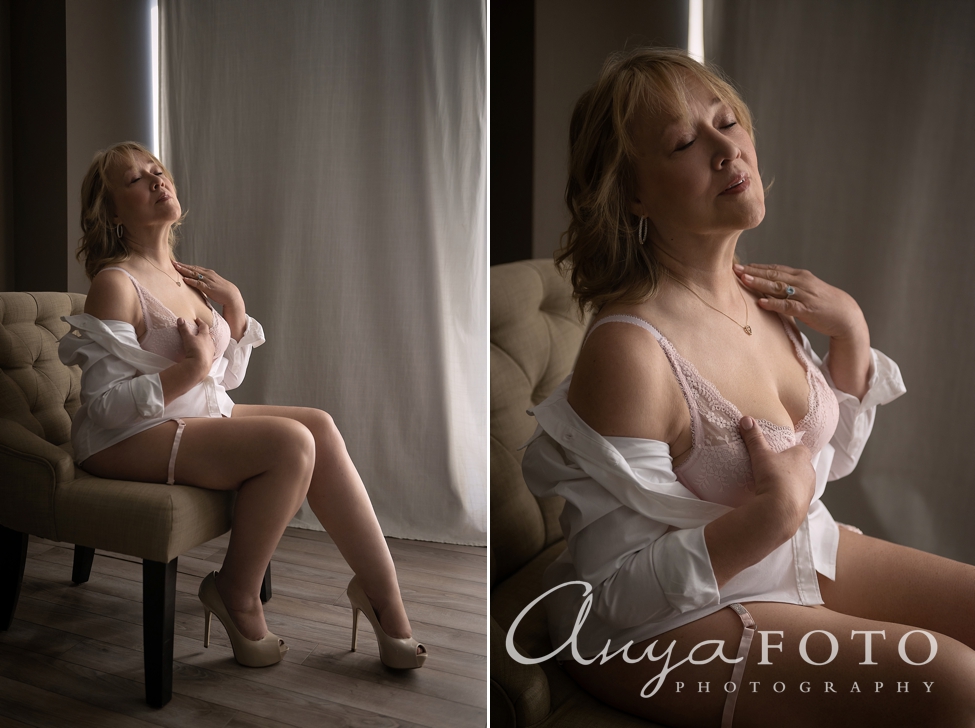
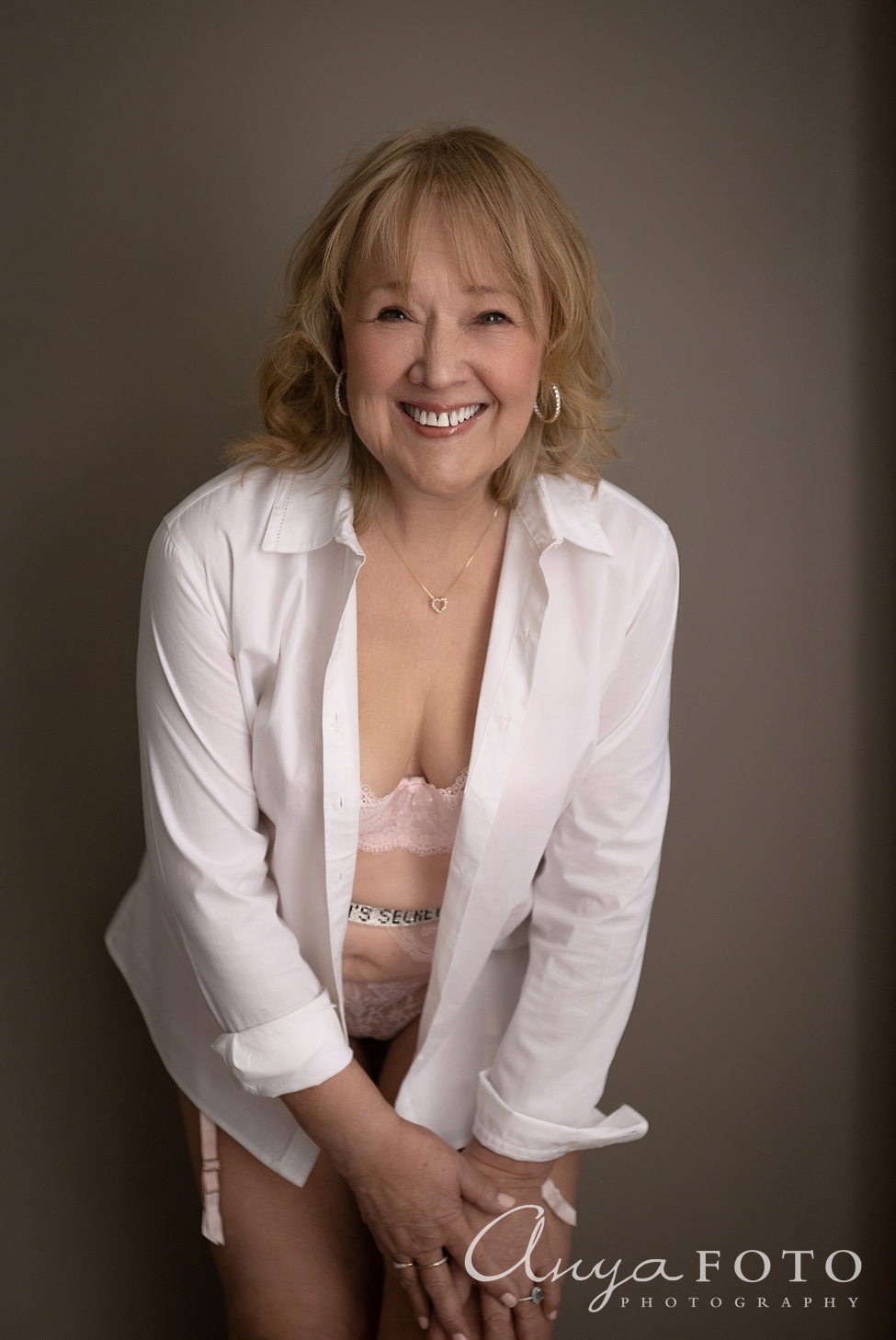
Ageless Elegance: The rise of boudoir sessions for women over 50

Boudoir photography has traditionally celebrated the intimate, private sides of individuals, often associated with youth and conventional beauty standards. However, a fresh, empowering trend is emerging: boudoir for the mature, confident woman. Let’s dive into the rise of boudoir sessions for women over 50, a movement redefining age-related stereotypes.
For decades, the media and popular culture painted a rigid picture of beauty: young, slender, and flawless. With the world’s population living longer and healthier lives, the paradigm has begun to shift towards a more inclusive and diverse representation, challenging previously held beliefs about age and allure.
The idea that beauty fades with age is a longstanding myth, ingrained deeply within societal norms. Yet, boudoir photography is pioneering a change, showcasing that allure, charm, and sensuality aren’t confined to youth.
For many mature women, a boudoir session is more than just photographs—it’s a statement. It’s about celebrating life’s milestones, cherishing their journey, and declaring that beauty is timeless. These sessions are becoming avenues for women to define beauty on their terms, embracing the confidence and poise that come with experience.
A boudoir session with a mature woman is rich with depth, stories, and character. Unlike younger subjects, they bring a lifetime of experiences, making their sessions uniquely poignant and genuine.
Connie, 74, shared her boudoir experience, ” I felt beautiful, sexy and confident. The photos captured a side of me that is me, but not always seen, and reminds me that I am also that woman every day. I will treasure my album forever as a reminder of another part of me that I almost forgot, and am so happy to have found.”
For those considering a boudoir session:
- Wardrobe: Choose outfits that make you feel confident, whether it’s vintage lingerie or a classic robe.
- Posing: Let your grace shine. Your photographer will guide you, ensuring poses that exude confidence.
- Makeup and Hairstyling: Focus on enhancing your natural beauty, letting your ageless charm shine through.
Embrace the changes your body has undergone. They’re a testament to your journey. Find a photographer who appreciates and captures the unique beauty of mature women, ensuring a comfortable and empowering experience.
Beauty knows no age. Through the lens of boudoir photography, we’re reminded of this truth time and time again. To all women, regardless of age, consider boudoir photography as a testament to your journey, your strength, and your timeless elegance. Challenge stereotypes, embrace your narrative, and most importantly, celebrate YOU.






